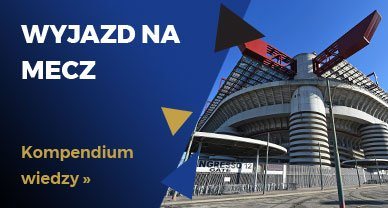
Dzisiejsze wydanie rzymskiego dziennika Corriere dello Sport donosi, że pierwszym posunięciem w zarządzie Ericka Thohira będzie pozbycie się z sztabu Marco Branki.
Nowe nominacje powinny pojawić się wraz z wiadomością o odejściu Włocha z drużyny Nerazzurrich. CdS jest zdania, że przez te same drzwi co Branka bezpowrotnie wyjdzie także Rosan Roeslani, jeden z członków zarządu. Jednak aby doszło to do skutku, Thohir będzie musiał wybrać jedną z dwóch opcji. Opcja a) - Thohir wykupi pozostałą część udziałów oraz opcja b) - zostanie stworzone miejsce dla grupy Bakrie, projektu Thohira który miałby wspierać Inter poprzez udziały Roeslaniego.



 nie ogladam, moze bez jego winy, ale chlop ma genialne statystyki w tym sezonie
nie ogladam, moze bez jego winy, ale chlop ma genialne statystyki w tym sezonie










Komentarze (8)
You might raise an eyebrow if someone, who last year appeared to have had something to do with taking US$173 million out of a major coal mining company in Indonesia of which he was once a senior manager, and a Director of its parent group, on what may well been a basis that lacked either proper authority or a clear business purpose, then promised to put it back “by the end of the year”.
You might then raise another eyebrow (and you only have two) if the same guy then becomes part of a just-announced consortium agreeing to buy a majority stake in an Italian football team, apparently for as much as US$400 million according to the Italian newspaper Gazzetta dello Sport. How much of the deal will be his own stake is unknown of course, but he must certainly like football.
Well you can indeed raise eyebrows for both items as it has just been announced that three Indonesian business men; media tycoon Erick Thohir, together with associates Handy Soetedjo and Rosan Roeslani are taking a 70% position in the famous Milanese football club Inter Milan by way of a subscription for treasury shares which puts new money into the club.
Rosan Roeslani used to be a Director of Indonesian mining group Bumi plc until December 2012. He also used to manage its major coal mining subsidiary Berau Coal, until January 2013. Just four months ago in June at the company’s annual meeting it was announced with great fanfare that Roeslani had agreed to repay US$173 million, out of a total of US$201 in payments made on his watch at Berau that had been deemed to be questionable and without any clear purpose. Mr. Roeslani was not accused of any wrongdoing, however, and it was made clear that return of the money would waive any potential claims against him.